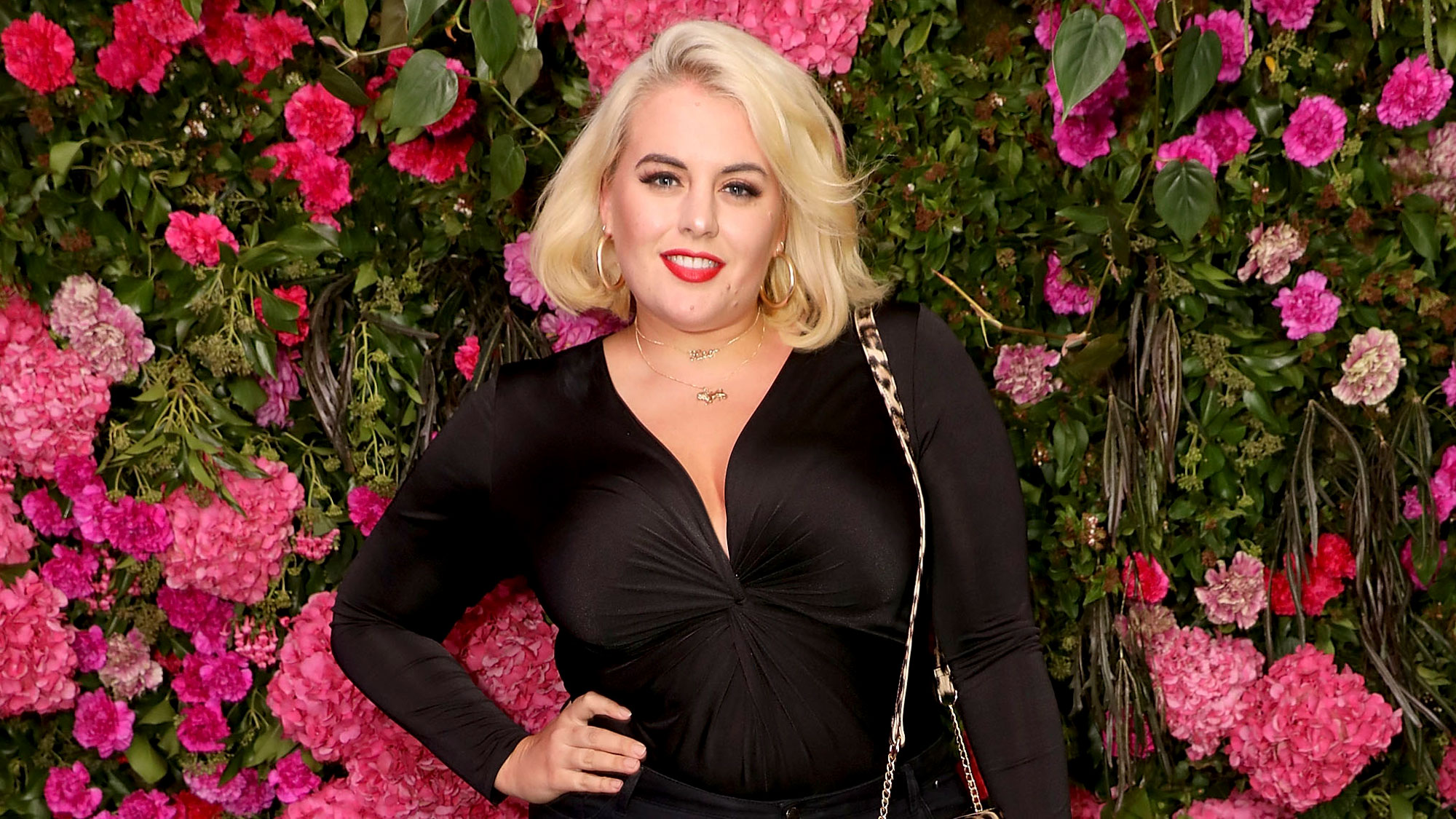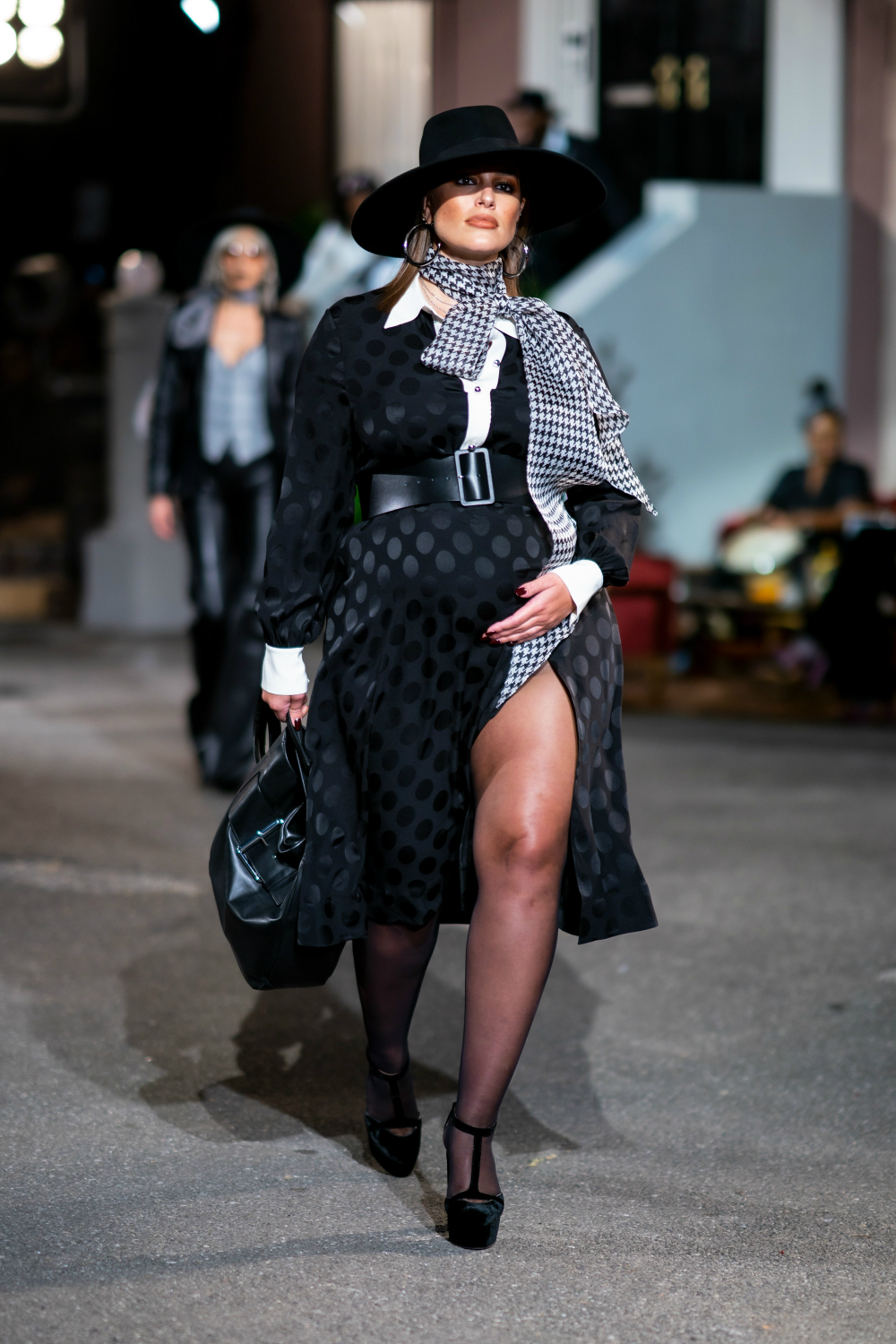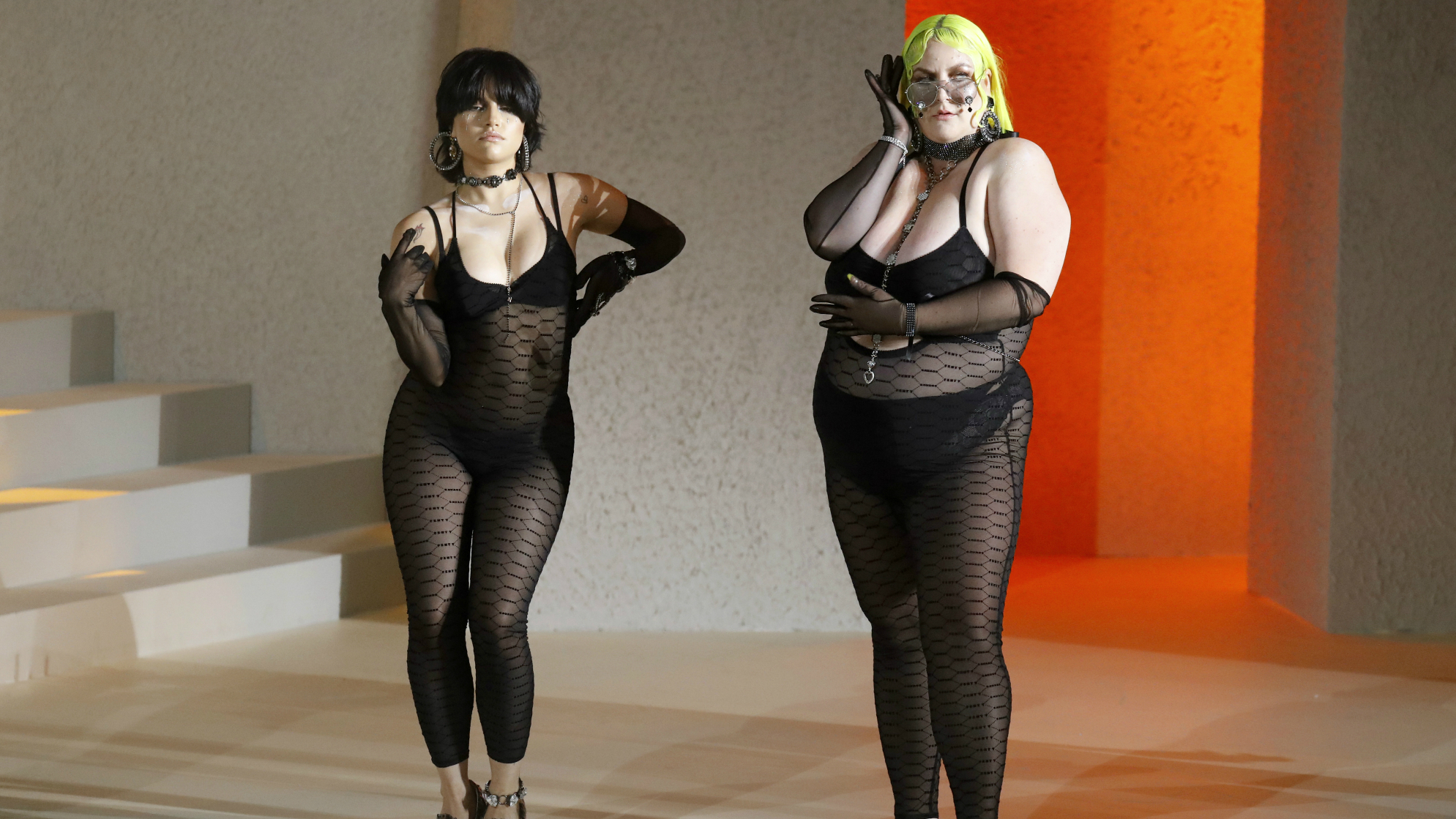#useyourvoice: 'Why I boycotted London Fashion Week' model Felicity Hayward explains
Model and body positivity activist Felicity Hayward didn't attend the London Fashion Week shows. Why? She believes a lack of diversity is damaging the industry and leaving London lagging behind in the fight for equality


Model and body positivity activist Felicity Hayward didn't attend the London Fashion Week shows. Why? She believes a lack of diversity is damaging the industry and leaving London lagging behind in the fight for equality
'We would love for Felicity to attend our show this season, but unfortunately we can’t do dressing’. It’s a carefully crafted email that has become the norm for me to receive prior to London Fashion Week and, quite honestly, I’m bored of it. I’m tired of supporting an industry that doesn’t support me and women of my size so, this season, I boycotted LFW.
I get that I am not the sample size, but it’s not just me who struggles: my size 10/12 peers find it hard too, and just about manage to squeeze themselves into generous cuts. Me? I’m lucky if I am offered a bag or a hairclip.
Plus-size model Ashley Graham spoke to designer American Christian Siriano [who shows at New York Fashion Week] in her latest podcast, Pretty Big Deal, about this very subject, asking him, ‘Is it hard to cater for bigger sizes?’. He replied, ‘It takes time but my small team of 20 still seem to be able to do it, I’m not sure why others can’t.’ And to me, that spoke volumes.
So why are plus-size women not included; not seen at the shows? I think the answer goes much deeper than not being able to find the right dress.

I turned down an invitation to attend The Fashion Awards because I was offered one outfit for the occasion, while my thinner counterparts were afforded myriad dresses to choose from. It may sound petty at first, but I’m tired of plus-size women always being seen as an after-thought. We deserve to be at these events, but we’re often told to be grateful to be included at all.
We are living in the year 2020. Haven’t we all woken up to the fact the world is not one beauty ideal or one size?
Celebrity news, beauty, fashion advice, and fascinating features, delivered straight to your inbox!
I love London, I really do. I moved here when I was 17 to study. This place I call home has paved the way for so many iconic fashion labels and brands. London created punk and it remains a pioneer for a plethora of trends and talented designers. So why are we still so far behind when it comes to diversity?
Every season during the shows, I take my seat and pray I will see some sort of improvement in diversity. But every year, I’m disappointed: I’m lucky if I see one or two women walking at LFW who are even slightly curvy. London just doesn’t take risks when it comes to body diversity - and it’s starting to show.
After all, we live in a society where the rise of social media has influenced how people feel about fashion and identity. As an audience, we want to see something real; we want to be able to relate and aren’t following one type of body or beauty ideal anymore.
Rihanna and what she has achieved with her Fenty enterprise is a great example. You only have to see the Savage X Fenty lookbooks or Fenty Beauty campaigns to realise that she is making her brands accessible to everyone.
I attended the Savage X Fenty show in New York last season and I was literally in tears. There stood Bella Hadid, one of the world’s most famous supermodels, next to a size 22 model dripping in lace and diamonds. A plus-size dancer and a model with a prosthetic leg then took to the stage. Everyone single one of those women glowed. They looked empowered and there was no hierarchy among them: they were all considered equal in their beauty.
That show did something to people. It showed love, respect and power. It portrayed a fierce female force that was an army to be reckoned with. This is how the world really looks now, and Rihanna reflected that in her fashion offerings.

So why aren’t we seeing the equivalent of this in London?
Is it because we don’t have as many plus-size icons as they do in the States? Or is it simply that there’s less pressure to dress curvier celebrities, so designers avoid the issue in shows, too?
Looking on Christian Siriano’s website I find his take on the subject: ‘[We design for women of all body types]. It is simply bad business to ignore a demographic. We order most production runs of the Christian Siriano Collection up to size 18 [or UK 22], as that is what our retailers order from us. However, when any piece from our collection is desired in a size not pre-produced, we can make it custom for the client.’

And this is from the designer who created Billy Porter’s iconic Oscar gown in 2019. Siriano also famously dressed 17 women for the Oscars in 2018, including Whoopi Goldberg, Janelle Monae, Amy Adams, Laverne Cox, Christina Hendricks and Keala Settle - each of whom exude their own style, size and beauty. Wouldn’t it be nice if this wasn’t seen as trailblazing, but normal?
The truth is, I am embarrassed that the UK isn’t catering for plus-size women; that we’re continually being excluded from high-profile shows and events.
London Fashion Week, I love you. But you gotta step up your game.
* Follow Felicity on Instagram @felicityhayward
Maria Coole is a contributing editor on Marie Claire.
Hello Marie Claire readers – you have reached your daily destination. I really hope you’re enjoying our reads and I'm very interested to know what you shared, liked and didn’t like (gah, it happens) by emailing me at: maria.coole@freelance.ti-media.com
But if you fancy finding out who you’re venting to then let me tell you I’m the one on the team that remembers the Spice Girls the first time round. I confidently predicted they’d be a one-hit wonder in the pages of Bliss magazine where I was deputy editor through the second half of the 90s. Having soundly killed any career ambitions in music journalism I’ve managed to keep myself in glow-boosting moisturisers and theatre tickets with a centuries-spanning career in journalism.
Yes, predating t’internet, when 'I’ll fax you' was grunted down a phone with a cord attached to it; when Glastonbury was still accessible by casually going under or over a flimsy fence; when gatecrashing a Foo Fighters aftershow party was easy-peasy-lemon-squeezy and tapping Dave Grohl on the shoulder was... oh sorry I like to ramble.
Originally born and bred in that there Welsh seaside town kindly given a new lease of life by Gavin & Stacey, I started out as a junior writer for the Girl Guides and eventually earned enough Brownie points to move on and have a blast as deputy editor of Bliss, New Woman and editor of People newspaper magazine. I was on the launch team of Look in 2007 - where I stuck around as deputy editor and acting editor for almost ten years - shaping a magazine and website at the forefront of body positivity, mental wellbeing and empowering features. More recently, I’ve been Closer executive editor, assistant editor at the Financial Times’s How To Spend It (yes thanks, no probs with that life skill) and now I’m making my inner fangirl’s dream come true by working on this agenda-setting brand, the one that inspired me to become a journalist when Marie Claire launched back in 1988.
I’m a theatre addict, lover of Marvel franchises, most hard cheeses, all types of trees, half-price Itsu, cats, Dr Who, cherry tomatoes, Curly-Wurly, cats, blueberries, cats, boiled eggs, cats, maxi dresses, cats, Adidas shelltops, cats and their kittens. I’ve never knowingly operated any household white goods and once served Ripples as a main course. And finally, always remember what the late great Nora Ephron said, ‘Everything is copy.’
